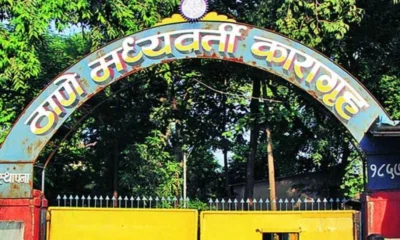India News
Thane: Man kills acquaintance to marry his wife; arrested
The police arrested the accused on Saturday.

India News
JNU protest turns violent as Left and Right student groups trade charges
A late-night protest at JNU turned violent as Left and ABVP student groups accused each other of stone-throwing and attacks near the East Gate.
India News
World praised India’s AI potential at AI Impact Summit, says PM Modi
PM Modi said the world praised India’s AI potential at the AI Impact Summit 2026, where 89 countries endorsed the New Delhi Declaration on artificial intelligence.
India News
Devendra Fadnavis seeks CBI probe into Ajit Pawar plane crash
Maharashtra Chief Minister Devendra Fadnavis has requested a CBI investigation into the plane crash that killed Deputy CM Ajit Pawar, alongside ongoing DGCA and CID probes.
-

 India News3 hours ago
India News3 hours agoDevendra Fadnavis seeks CBI probe into Ajit Pawar plane crash
-

 LATEST SPORTS NEWS2 hours ago
LATEST SPORTS NEWS2 hours agoICC Men’s T20 World Cup 2026: South Africa outclass India with smart slower-ball strategy in Super 8
-

 India News2 hours ago
India News2 hours agoJNU protest turns violent as Left and Right student groups trade charges
-

 India News2 hours ago
India News2 hours agoWorld praised India’s AI potential at AI Impact Summit, says PM Modi

















